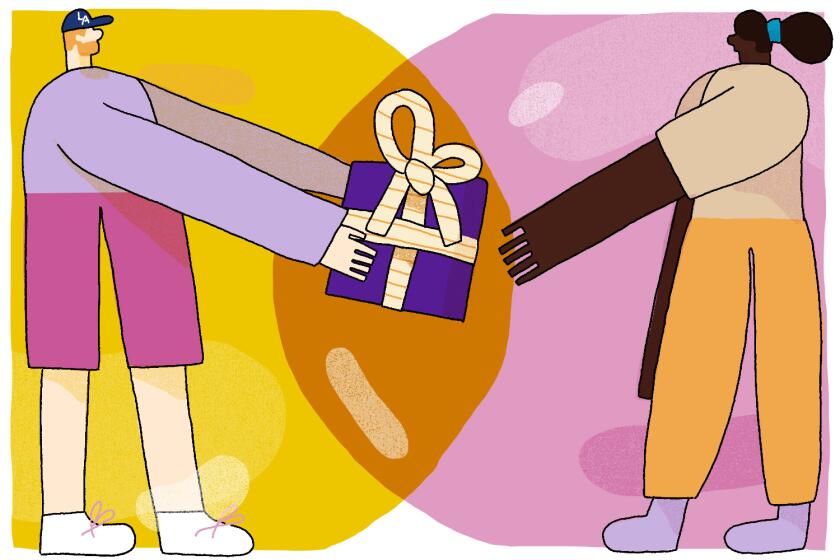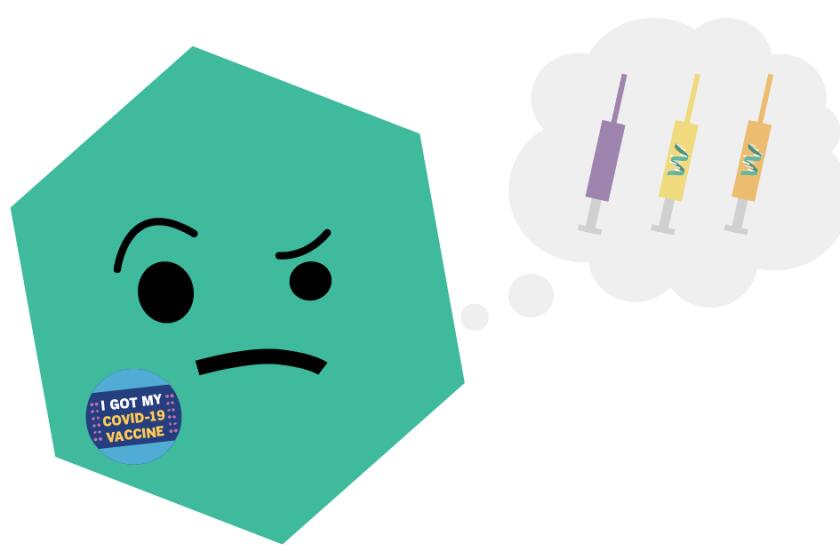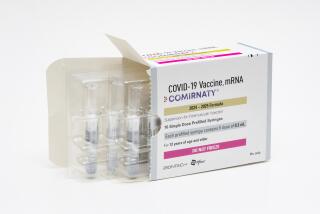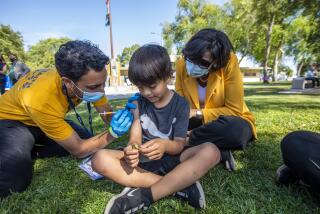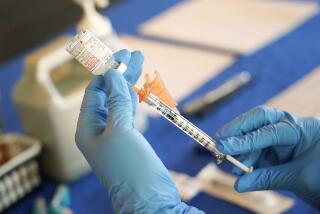Biden administration pushes booster shots as second pandemic winter approaches

WASHINGTON — U.S. public health officials approved making booster shots available to all adults on Friday, opening a new phase in the fight against the COVID-19 pandemic as Americans brace for another winter of rising infections and hospitalizations.
It’s a step that several states, including California, have already taken amid concerns that the effectiveness of vaccines received earlier this year could be waning just as more people are traveling for the holidays and gathering indoors.
The expanded availability of booster shots could bolster President Biden’s efforts to limit the pandemic’s devastation, which has evaded his attempts to bring it to an end and bogged down his administration’s agenda.
“The public just wants normal again,” said Julian Zelizer, a presidential historian at Princeton University. “If it doesn’t work, he has a big political problem on his hands.”
The back-to-back decisions by the Food and Drug Administration and the Centers for Disease Control and Prevention on Friday will simplify the process for Americans who are seeking additional protection from the coronavirus.
Although boosters were available to older Americans and those at high risk of infection, now anyone who is at least 18 years old can get another shot as long as it’s been six months since their previous dose if they previously got the Pfizer-BioNTech or Moderna vaccine, or two months if they received the Johnson & Johnson shot.
“It’s a major step forward to accelerate our path out of the pandemic,” Biden tweeted. “You can get your booster and enjoy the holiday season knowing you have the highest level of protection.”
The 2021 holidays will be much different from 2020 thanks to the COVID-19 vaccines. But we aren’t quite back to normal. Here’s what you should know.
The expanded authorization of booster shots was handled swiftly by an administration that has struggled to find ways to bring the pandemic under control, despite making vaccines widely available and free of charge.
More than 60 million Americans are eligible to get vaccinated but have not yet gotten a shot, and the more contagious Delta variant continues to spread through the country. An average of 1,000 people die from COVID-19 every day.
With cases on the rise again, the Biden administration has purchased 10 million doses of Pfizer’s antiviral pill for treating the disease. The pill has not yet been approved by the FDA, but clinical trials have been promising and Biden wants to make it available for free once authorized.
“This treatment could prove to be another critical tool in our arsenal that will accelerate our path out of the pandemic,” Biden said in a statement.
The lingering pandemic has frustrated a presidency staked on bringing it to a close.
“We are tired and exhausted by the pandemic as well,” White House Press Secretary Jen Psaki said at Friday’s briefing. “What we can do is encourage action.”
Nearly 196 million people are considered fully vaccinated, and more than 30 million people have received booster shots. Biden has also sought vaccination requirements to persuade the hesitant or unwilling to get their initial shots, although the Labor Department regulations on private companies is tangled up in litigation from Republican state attorneys general. Biden is also implementing a vaccine requirement for federal workers and contractors.
COVID-19 vaccine boosters are now available. But, they’re only recommended for some people. See if you are eligible here.
Psaki acknowledged that there are limits to the administration’s powers to end the coronavirus crisis without cooperation from Americans.
“We have done everything humanly possible,” she said. “At a certain point, it is true, that people have to go get shots, get themselves vaccinated and protect themselves.”
How the next few months unfold could alter how the country views Biden’s handling of the coronavirus, said Zelizer, the Princeton historian.
“It is the kind of crisis that, if it flares in the next couple of months, it all gets undone pretty quickly,” he said.
Biden already suffered a setback earlier this year when his administration announced that vaccinated Americans no longer need to wear masks, only to rescind that guidance as the Delta variant began spreading.
“It’s like PTSD on top of PTSD,” said John Anzalone, a Democratic pollster who has worked with Biden. “That impacts a lot of how people view life.”
Biden’s approval rating on the pandemic has been slipping since July, according to FiveThirtyEight, which analyzes polling data.
Monmouth University pollster Patrick Murray said the struggle with the coronavirus has fed a perception among some Americans that Biden is not as competent as he promised voters.
“While people agree with the policies, they want to see that he can enact them in a way that gets us back to normal,” he said.
Reaching normality is a challenge. Dr. Amesh Adalja, a senior scholar at the Johns Hopkins Center for Health Security, wasn’t sure expanded boosters would have a significant impact, saying that they’re mostly useful for people at high risk of serious illness.
“It is first and second doses that are the most important as we go into the winter, not additional doses,” he said.
Ultimately, he said, the virus “is going to be endemic,” meaning it will continue circulating at lower levels.
Dr. Robert Wachter, chair of UC San Francisco’s Department of Medicine, described the pandemic endgame in a similar way. He said the coronavirus “is here to stay for many years, perhaps forever.”
Vaccinated people will probably need to get regular boosters, he said, and it’s “close to inevitable” that the unvaccinated will contract COVID-19 at some point.
However, he was more confident that Friday’s decision expanding booster shots could have a positive impact. Wachter considers people who received their last dose more than six months ago to be somewhere between fully vaccinated and unvaccinated when it comes to protection from the virus.
“Bumping their level of protection back up will not only protect them from COVID but should markedly decrease the level of community spread, thus helping the entire community,” he said.
More to Read
Get the L.A. Times Politics newsletter
Deeply reported insights into legislation, politics and policy from Sacramento, Washington and beyond. In your inbox three times per week.
You may occasionally receive promotional content from the Los Angeles Times.
